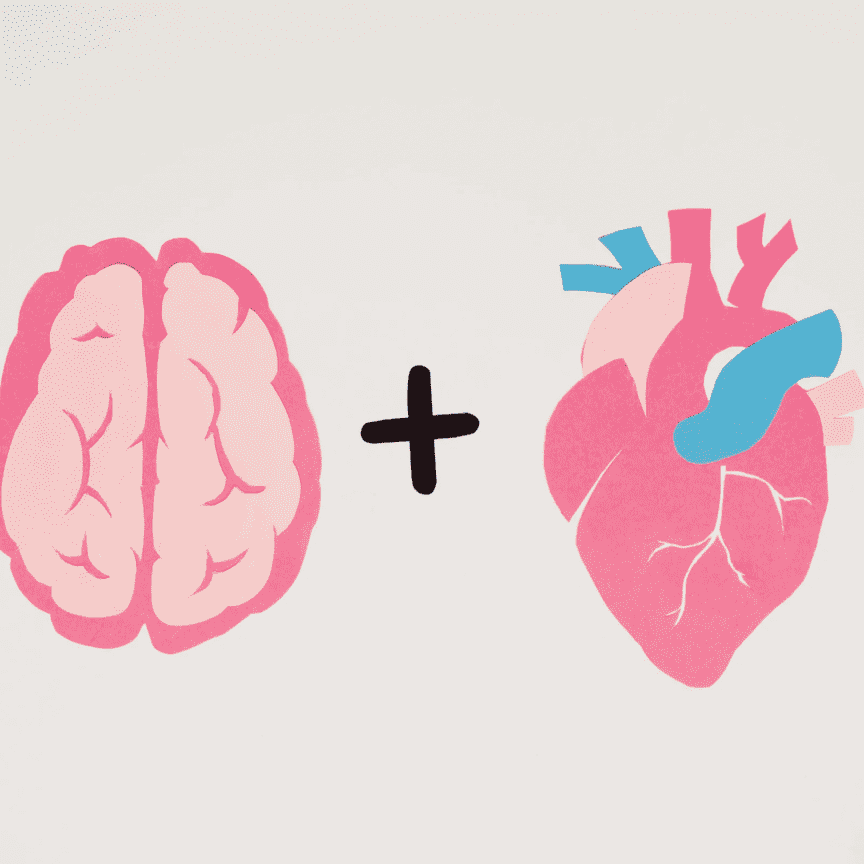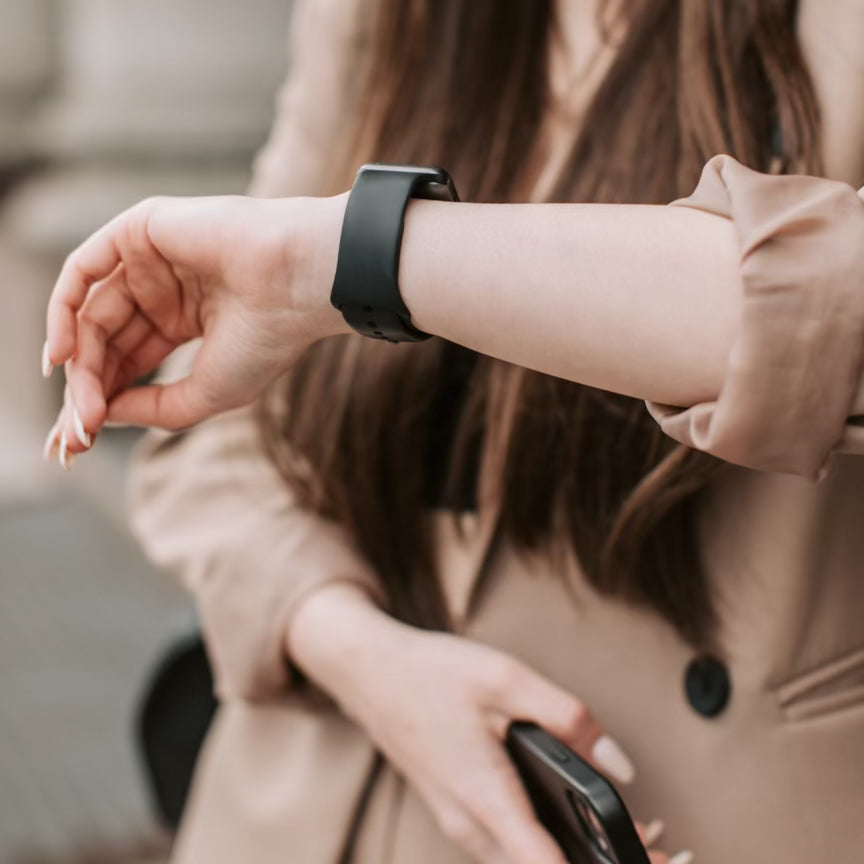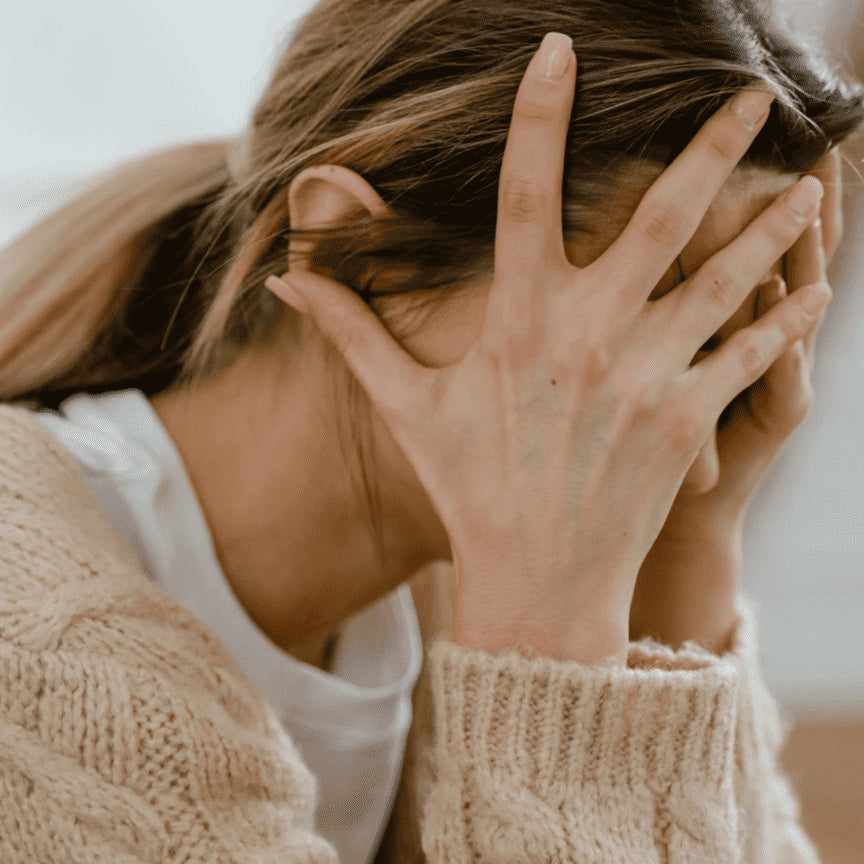Agora Health Conversations
Join the conversation
Our Agora Conversations are free, easy-to-read articles on our website, covering a range of health and wellbeing topics. For more in-depth insights, we bring you the latest research and women’s health news through exclusive articles available to members via our app.
Women's Health
The Future of Fertility Treatments
For many women, fertility challenges such as diminished ovarian reserve, endometriosis, or uterine damage can feel like an emotional and physical uphill battle. But thanks to pioneering advances in stem cell research, new treatments are emerging that could transform what’s possible in reproductive health.
Learn moreThe Power of Lymphatic Drainage.
When hormones are out of balance, the body tends to hold on to more fluid and toxins. Supporting your lymphatic flow can help reduce this congestion, improve circulation, and give your body the boost it needs to rebalance.
Learn moreBeyond the Menopause: What to Expect in the Years That Follow
Far from being a quiet footnote, post-menopause is a significant and sometimes challenging phase in a woman’s journey. While some symptoms may ease with time, others persist or evolve. Talking openly about these experiences, recognising the signs, and seeking proper support can make all the difference.
Learn more
Mental Wellbeing
What is Emotional Intelligence?
True personal growth and emotional balance come from regular, intentional effort. If we are constantly absorbed in virtual experiences that have little connection to our real lives, we risk losing touch with what truly matters, our emotional well-being and human connection.
Learn moreSpiritual Growth and Women's Health
Healthcare professionals play a pivotal role in integrating spirituality into patient care, fostering a more holistic approach to healing. By acknowledging and respecting patients' spiritual beliefs and practices, they can create a supportive environment that enhances emotional resilience and overall well-being.
Learn moreAutumn: Renewal and Self-Reflection
Are there behaviours or thought patterns that are holding you back? Are there habits that make your life feel more difficult or unpleasant? Just as we make room for the changes in nature, autumn calls on us to clear the mental clutter as well.
Learn more
Nutrition
Did You Know Your Gut Needs Vitamin D Too?
Even with a balanced diet, it can be difficult to reach the recommended levels of vitamin D, which is why the NHS advises most people to consider a daily supplement, particularly during autumn and winter.
Learn moreWhat’s Going On With Our Guts?
Some experts suggest that our modern diets, packed with ultra-processed foods, preservatives, and a lack of diversity, could be contributing to a rise in gut issues. Add environmental factors, stress, and changes in farming practices, and it’s no surprise our digestive systems are under pressure.
Learn moreThe Power of Hydration.
A Conversation on Health Sunday was National Hydration Day, a timely reminder of how essential water is for life. Every system in our body depends on adequate hydration to function correctly, making it indispensable for our survival. But hydration isn’t just about keeping our bodies running; it’s about replenishing what we lose every day through sweating, urination, and even breathing. Staying hydrated is especially crucial for women, yet many of us find it challenging to drink enough water daily. How Much Water Do You Need? The daily water intake requirement is at least 1.5 to 2 litres per day. This amount increases if you are exercising, sweating more than usual, living in a hotter climate, or breastfeeding. Meeting this requirement is essential for overall health and well-being. To help track your intake, use the same bottle so you can estimate how many litres you are drinking. A helpful tip is to sip water throughout the day to reach your target. This way, you won't even notice you're drinking that much water. Additionally, don't count extra drinks throughout the day, as people often overestimate their water intake because of them. Hydration and Menstrual Health. Staying hydrated is crucial for managing period pain and keeping your energy levels up. Proper hydration supports all bodily functions, including a healthy menstrual cycle, by reducing painful cramps and enhancing overall well-being. Ensuring you drink enough water is key to managing various period-related issues and irregularities. Here's a tip: kickstart your day with a glass of water, it's the first thing your body needs! Hydration and Menopause. Menopause is a significant phase in a woman's life, bringing both physical and mental changes. Each woman experiences menopause differently; for some, it comes with severe and bothersome symptoms that can drastically affect the quality of life. However, good nutrition and hydration can play a critical role in alleviating some of these symptoms and reducing menopause-related health risks like cardiovascular disease (CVD) and osteoporosis. During menopause, fluctuating hormone levels can trigger headaches, especially when coupled with inadequate water intake. The brain relies heavily on water to function optimally, and even slight dehydration can worsen symptoms like brain fog and irritability. Moreover, common menopausal symptoms like hot flushes and night sweats can further deplete hydration levels, underscoring the importance of increasing fluid intake to stay adequately hydrated. Also don’t forget that a good level of hydration will help combat vaginal dryness. Nutritional strategies are also essential in our lives and must be tailored to our age, environment, and individual physical needs. Let's explore key recommendations for different phases in a woman's life to ensure optimal health and well-being at every stage. Nutritional Strategies for Menopause Soy Isoflavones: research on soy isoflavones is mixed, but regular consumption of soy-based foods such as soy milk, tofu, tempeh, and edamame beans has been found to reduce the severity and frequency of hot flushes. Calcium and Vitamin D: as we age, we start to lose calcium from our bones. During menopause, lower oestrogen levels accelerate this loss. Post-menopausal women should aim to consume 2-3 servings of calcium-rich foods daily, such as dairy products, tofu, tempeh, fortified milks, and green leafy vegetables. Additionally, a vitamin D supplement is advisable for bone health. Balanced Diet: a healthy, balanced diet rich in vegetables, fruit, fibre, healthy fats (nuts, seeds, fatty fish, cold-pressed oils, avocado), good quality protein, and complex carbohydrates is essential. Limiting alcohol and caffeine intake is also recommended. Nutritional Needs During Menstrual Cycles. Period pain is a common issue, and certain nutrients can help alleviate it. Ensuring adequate intake of the following nutrients is crucial: Vitamin D: Adults should supplement 10mcg of vitamin D during the months without sufficient sunlight (usually September to March). Omega-3:Consider an omega-3 supplement, especially if you're vegan or vegetarian. Magnesium: A magnesium salt bath can encourage relaxation and relieve menstrual and stomach cramps due to its muscle-relaxing properties. Calcium and Iron: calcium is essential for overall health, and iron is particularly important during menstruation due to blood loss, which can lead to fatigue. Hydration and nutrition play a pivotal role in women's health, particularly during menopause and menstrual cycles. By staying hydrated and consuming a balanced diet rich in essential nutrients, women can manage symptoms more effectively and maintain a higher quality of life. Remember, taking care of your body through proper hydration and nutrition is an investment in your long-term health and well-being. As I conclude, know that you are not alone on this path to better health and wellness. Your journey is unique but together we form a community of strength and support. Let’s thrive together, Cristina x
Learn more
Lifestyle
What Apps and Wearables Can (and Can’t) Do.
My watch indicated that I was experiencing stress, even before I realised it myself. Does that resonate with you? If you wear a fitness tracker, smartwatch, or ring that nudges you to breathe, move, or meditate, you are participating in an exciting transformation in health technology. For women, this journey often involves navigating a complex relationship with their bodies and the devices designed to offer support and guidance. But what are these devices doing? And how do they make us feel? The Science of Stress, Now on Your Wrist According to a 2023 review on wearables for stress management, more than 60% of research studies found significant reductions in stress among users of wearable devices. Smartwatches and bands, especially those equipped with sensors that measure heart rate variability (HRV), galvanic skin response (how emotional a person is), and even temperature, have emerged as powerful tools for real-time stress detection and response. These devices do more than simply monitor stress, they actively help you manage it. Some give you a gentle vibration as a subtle cue to pause and breathe. Others guide you through calming techniques, such as resonance breathing, using mindfulness exercises. Many harness machine learning to tailor their responses, detecting when you might need a break, even before you consciously realise it. Sounds helpful, right? It often is, but the story doesn’t end there. A Mirror to My Nervous System In a separate review focused on women’s experiences with wearable self-tracking, users described their devices as both empowering and, at times, emotionally demanding. Women often felt more connected to their bodies, gaining insights into energy levels, mood and triggers they previously ignored or couldn’t articulate. One user described how her wearable helped her “listen” to her body more attentively. For many, the act of self-tracking offered agency, a way to reclaim understanding in a health system that sometimes leaves women feeling dismissed or misunderstood. But there’s a flip side. Beyond the potential risks related to data security, privacy, and the accuracy of collected information, the emotional labour of constantly monitoring and managing oneself may have negative mental health impacts, such as heightened anxiety. Constantly focusing on our health status isn’t necessarily a positive habit; in fact, some doctors are concerned it could lead to an increase in health anxiety and hypochondria (chronic anxiety about one's health), ultimately raising stress levels. Let’s be honest, we already juggle a never-ending to-do list, trying to eat well, stay active and keep a calm mind. Now imagine adding another voice, this time from your wrist, reminding you that you’ve missed your “recovery score” or didn’t get enough sleep. So, what should we actually do with all this data? As women, the rise of wearable health technology offers powerful insights into our bodies from tracking sleep, cycle phases and heart rate variability to monitoring stress levels and daily activity. This data can be incredibly useful in helping us understand our unique rhythms and make more informed decisions about our wellbeing. However, while wearables can guide and support us, they shouldn't replace our own intuition or become a crutch. The goal is to use this information as a tool, not to create a dependency. Long-term health and balance come from tuning into our bodies, making sustainable lifestyle changes and cultivating habits that support physical, mental and emotional wellness without needing constant digital validation. It's about learning to trust ourselves again, using tech to empower not override our inner intuition. Your data is powerful. But your story is what matters. Written by: Agora Health Team Sources: Del Busso, L., Brottveit, G., Torp Løkkeberg, S., Gluppe, G., 2022. Women’s embodied experiences of using wearable digital self-tracking health technology: A review of the qualitative research literature. Health Care for Women International 43, 1355–1379. https://doi.org/10.1080/07399332.2021.1884682 González Ramírez, M.L., García Vázquez, J.P., Rodríguez, M.D., Padilla-López, L.A., Galindo-Aldana, G.M., Cuevas-González, D., 2023. Wearables for Stress Management: A Scoping Review. Healthcare 11, 2369. https://doi.org/10.3390/healthcare11172369
Learn moreHow Today's Habits Are Impacting Our Health.
More than ever, there’s a need to reconnect with both our mental and bodily needs. Our bodies aren't machines, they operate in cycles, and it's important to respect them. Remember looking after your health isn’t selfish, it’s powerful!
Learn moreReconnecting with Pleasure: Why Sexual Retreats Are Gaining Ground in the UK.
It’s surprisingly common for women to feel a lack of connection with their intimate selves, not just emotionally, but physically. Remember sexuality is not one-size-fits-all, and our journeys of discovery deserve to be as unique as we are.
Learn more












